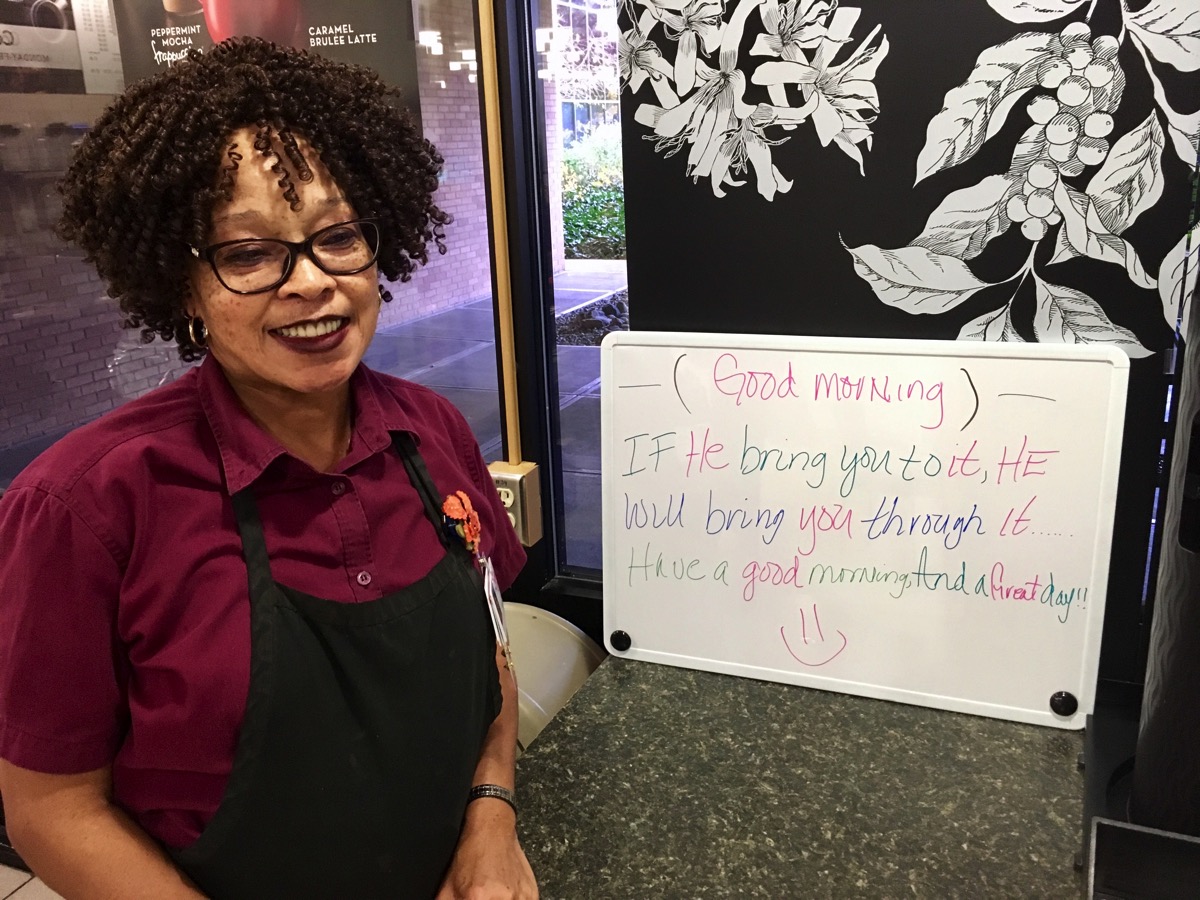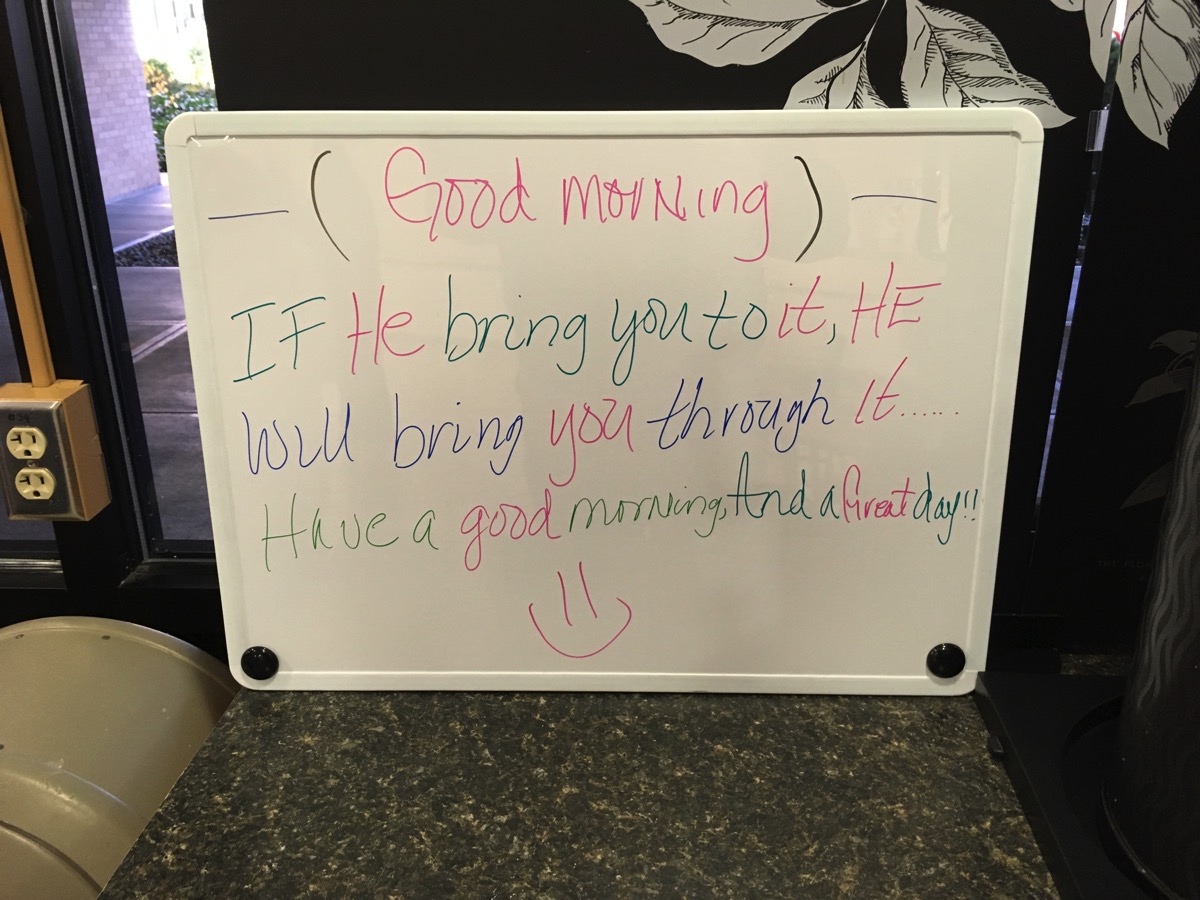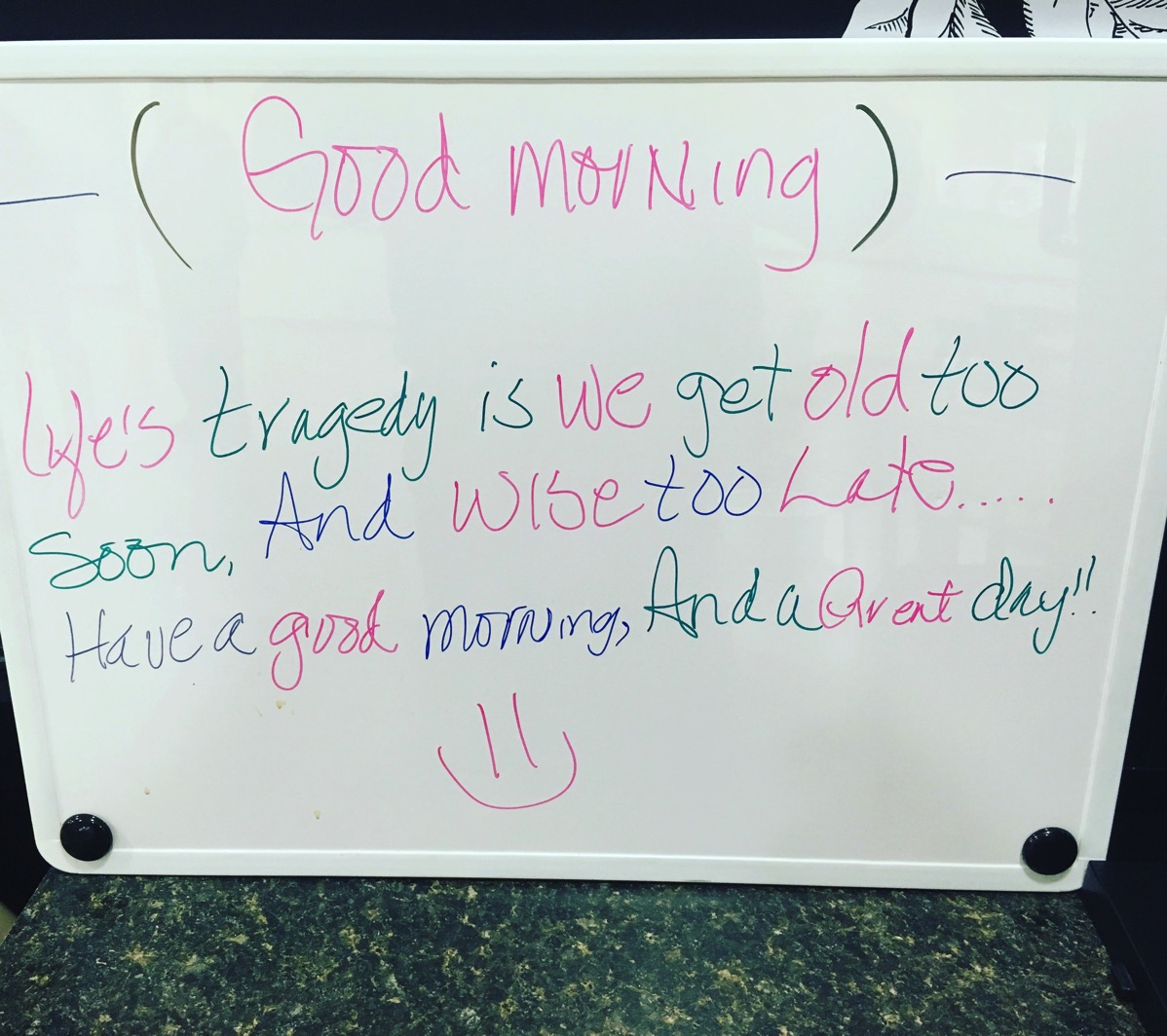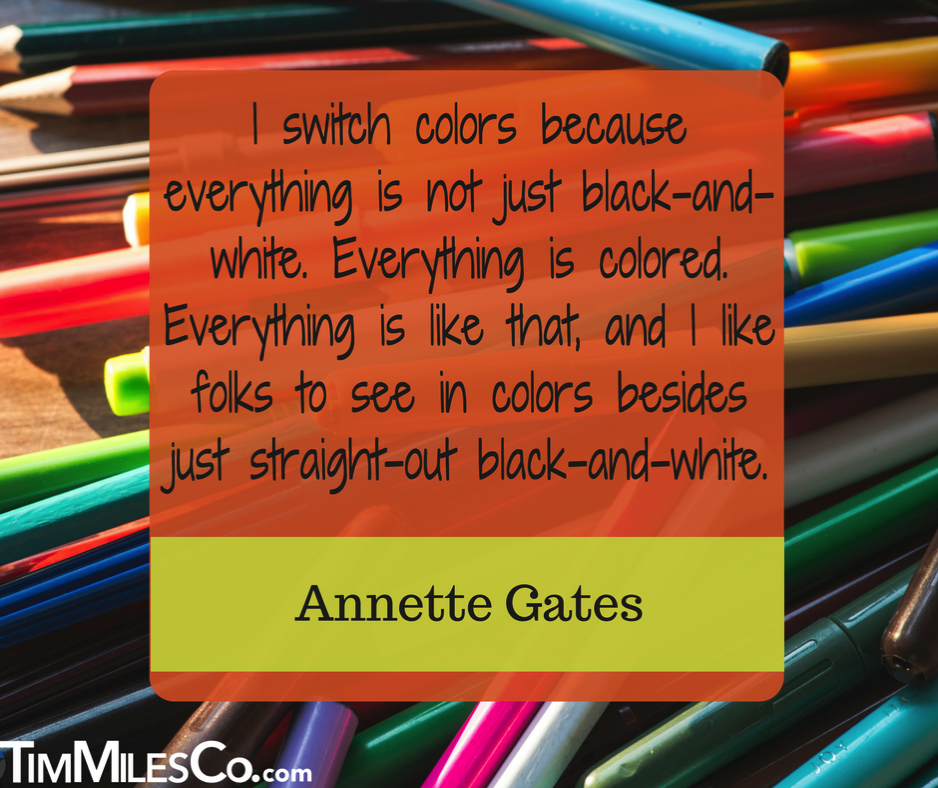“It makes me feel good to know that everyone enjoys what I write,” she said.
I’m listening to Annette Gates, who works in the Atrium Coffee Shop at Carle Hospital in Urbana, Illinois.
When I began visiting my Dad here, I had to walk past Annette’s shop every day, and I began to notice the signs.
Each day, they were different.
But moreover, they were written in several different colors, and I was struck by the time it must take Annette—in addition to everything else she does to prepare each morning—to create those signs using different colored markers for different words. Why go to the trouble?
“Because I make sure the main people that I’m speaking about is always done in red, like “He” or the main things,” Annette said when I asked her. “I switch colors because everything is not just black-and-white. Everything is colored. Everything is like that, and I like folks to see in colors besides just straight-out black-and-white.”
Minutes before I interviewed Annette, I held a sobbing stranger with bright blue hair in my arms. She was 50, and we had been on the same elevator, and she was preparing to tell the rest of her family that her mother was about to die. I didn’t know what to do or to say (who does??), so I just asked if she needed a hug. Without a word, she grabbed on tight.
“I was always her little girl,” the woman said.
Are hospitals filled with irony to you like they are to me?
On one hand, all visitors are here for sad (though sometimes hopeful) reasons, but we are all here for one another. We are all in this together: Black, Brown, White-And-Bright-Blue-Haired. We’re all someone’s little girl or little boy.
We are more alike than we are different.
I may ask Annette if she’d like to share that tomorrow on her sign.
Nah… Ms. Gates has been doing this for seventeen years without my help. I think she’s good without me.
In fact, I know she’s good. We could use a million more just like her. Would you like to be one? I’ll buy your pens.

(With encouragement from my mentor and partner, Roy H. Williams, I am borrowing the phrase he coined—Invisible Heroes—that’s moved me since I first heard it more than a decade ago. Roy believes, as I do, that the world is made infinitely better by those of us who do our part—day after day—to make the world a better place without notice. Invisible Heroes don’t make headlines; they’re not loud wails and boisterous boasts. They’re workers, servers, and good-deed doers. We have so much we can learn from watching them, asking questions to them, and being more like them. Here’s a short story about one such invisible hero. I hope to share more of these. I hope we all do. Thank you, Roy, for your blessing!)



